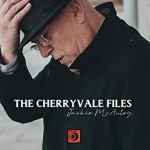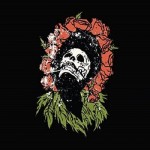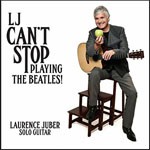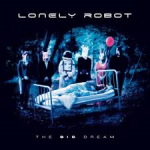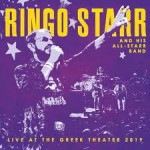Share the post "PSYCHOTIC WALTZ (Band sans Dan Rock) INTERVIEW"
PSYCHOTIC WALTZ (Band sans Dan Rock) INTERVIEW
If , prior to reading this interview, you had no idea who Psychotic Waltz were, you are probably not alone. This fact should not make you feel too happy, though, as what you have been missing for the last twenty years is one of the most innovative and emotionally powerful bands ever to cross the “Pond”! Even though the band had not released anything new for 15 years, these qualities led the band, with Devon Graves on vocals, to accompany Nevermore and Symphony X on a European tour. As London was not part of the touring schedule, I decided to travel to Weert in ‘neighbouring’ Holland – the place where the last performance of the Power Of Metal tour took place. In the back stage of the well-known venue De Bosuil, I met with Devon Graves, guitarist Vrian McAlpine, drummer Norman Leggio and bassist extraordinaire Ward Evans. Topics disused: an expected trip to memory lane, the band’s impressions of the tour and their plans for recording a highly-anticipated new Psychotic Waltz record!
By Yiannis Stefanis.
- Guys, it is indeed a great privilege and an honour to be doing this interview with you. Every time I have spoken to Devon in the past, the question as to whether you would re-form would always pop up and now it is finally a reality! Now, this being the last day of the Power for Metal tour, means that you’ve had the chance to bond again as a band and, I assume, that you have reached a conclusion as to whether being again together in the same band is a good idea or not. So guys, what’s the verdict?
Band: I thought that it was a good idea when we first had the idea to do it and we didn’t really know what to expect, whether or not the same fan base would return as it was or not and, what I can say, what has happened is far beyond what we expected. It’s not just the old fans but also a lot of new ones coming, people that weren’t old enough to see us but found out about us after we broke up, then grew up and are now old enough to come to our concerts and now can see us for the first time. There’s a lot of that and there’s a lot of people who came to see Symphony X and Nevermore telling us “wow, I’ve never heard of you guys before” but the praise with which they would lavish us is pretty overwhelming. These people have both box sets and the entire catalogue of CDs in their hands, some saying that after listening to us once they decided to buy the whole of our back catalogue. This is a little bit new to us: I don’t remember us ever been so well received on the strength of one listen, so this is very encouraging actually.
- You are indeed the most underrated band of the 90s. I mean, if the value of a band was judged solely on skill and not label politics, you guys should have been up there with the best of them – something that never happened. Do you believe that now the world is better prepared for a band like Psychotic Waltz?
Norman: We were actually having this conversation last night about that…
Devon: I don’t really think that our band is based so much on skill; I think that it’s based on emotion and that the people who are listening to us are making an emotional connection. This is something that I think that they are missing in…a lot of the Prog music that is out now is mainly focused on skill and I think that this is maybe the reason why we didn’t have our time the first time we were out because this wave of Progressive Metal still was yet to manifest itself and really take root. Now it’s had many years where there is this pattern that the progressive bands would take and call themselves Prog, Metal and what not, and maybe now that this has run its course…we were always amongst these bands but we were not…I never considered us Prog Metal – I never settled or set up to say like “hey Norm, let’s make a Prog band”. I didn’t think of it like that. I came from old-school Hard Rock background and the first wave of British Heavy Metal with bands like Black Sabbath and Led Zeppelin – sixties and seventies music! Then Dan and Brian and Norm came from a slightly later generation but still old-school by today’s standards, you know, artists like Randy Roads and bands like KISS and AC/DC being their main influences – still old Rock Music. Yes, we do have a more complex way of doing such music but it was never intended to be deliberately complex; more emotional. Anyway, I think that the world didn’t seem to be ready for it at the time – I don’t know if the world is ready for it now but it seems like a lot more people are. Anyway, for whatever the reasons…maybe people are ready for it now and I think that it is an emotional connection that is being made and not one relating to technique.
Norman: And as far as the Prog Metal thing goes, you know, you need to be labelled and in a compartment, so that is how they labelled us as. As far as what Devon was saying about us like, saying “ok, let’s make progressive songs”, we never set out when we wrote this music to say “Ok, let’s make this complicated, let’s make it this…let’s make it that…”. What we did is that we were fans of a lot of different types of good music and we ourselves just wanted to write good music and everything that you’ve heard that’s came out of us has come from out here – from our heart! That’s what we did and I think that, you know, no matter what year it is, people are going to pick on that. Maybe more people are noticing us now because there is a lot of stuff out there that doesn’t really have so much heart and soul, this being the age of Pro Tools and digital recording. I don’t want to belittle any of that because there is a lot of great stuff that’s coming out now, but I just think that that’s what people are picking up on; they see that this band had a lot of heart and that we just wrote good songs – we wrote music that we really enjoy listening to and playing, just like the way of all the people before us that we all admire. We enjoy good songs. I am sure that Zeppelin or…
Devon: (note: he starts playing a Zeppelin tune which bassist Ward Evans picks us instantly, hitting the couch of the back stage as if it was his four string).
Brian: Guys, we have three interviews to do and we have to finish them all, so please go on! (note: everybody laughs).
Norman: Ok, I have gone “bla bla” here, but what I am saying here is that nobody else ever thought about writing complicated songs that we enjoy – they just wanted to write good music.
Ward: I just want to say and add to that, that one thing that is different now than it was back in the days is the Internet. There is a lot more involvement and people can now find our music now – I think that it’s a lot more available than it was. We never really had good distribution and we were really a secret underground tape-trader cult band to most. Now, you can just go on line and Google us, you know? One guy tells another guy and you can kind of spread a little more widely, you know? I think that’s got a lot to do with all those young kids coming; their big brother told them about us or whatever and they can actually find our music now. This is the main difference from when we were out first time round.
- Approaching things from a fan perspective, I do see the last fifteen years as having been far more liberating for musicians in general. In the mid-80s you would either be a Thrasher or listen to classic Metal and you had to ‘belong’ in one of these categories. Now I see a young kid wearing a Vader t-shirt attending a Thin Lizzy show and it is all acceptable. Maybe now that music restrictions are not that relevant, maybe now it is indeed the time for young kids to appreciate your music. Maybe the kid that normally wears a Slayer t-shirt feels better inclined to come to a Psychotic Waltz show, so this should work in your favour this time round.
Norman: The kid that you describe is all of us! We were those kids twenty years ago, you know?

- That is why I always said that you were way ahead of your time.
Norman: I had a Slayer t-shirt on and I was spinning Led Zeppelin “III”, or I would be playing The Beatles “Abbey Road” and then putting on a Ramones record. We can all name obscure stuff; one minute we would be listening to Thrash Metal and the next minute we would pull up “Paul’s Boutique” by the Beastie Boys.
- There was a battle taking place as a result of that approach amongst the fans of the band back in the day. I remember that there was almost a universal approach that fans would separate in two different camps: those who preferred the “Into The Everflow” and “A Social Grace” era and the ones who were more in favour of “Mosquito” and “Bleeding”. I remember people saying things thing like “oh, they are traitors; they left behind all the technical aspects of their music and all of a sudden they decide to focus on melodies” and something tells me that if you were to ask the same people today about the band’s ‘second phase’ they will only have positive things to say about what you did and they will be happy to hear anything that you will decide to play tonight.
Devon: You know, what’s funny is that we took probably the biggest beating over the “Mosquito” album but it is something that actually Steve Cox (note: guitarist who replaced Brian McAlpine for the band’s final two European tours following the release of “Bleeding” back in 1996) first pointed it out and I notice it to this day; that although that album did take a hammering from the fans or whatever, when we play that material live I gets some of the best live responses during our set. It just goes to show…
- In some cases it takes a while before people start to realise a few things.
Devon: When we wrote that stuff we made the music a little bit more spread out because we noticed how it translates live very poorly if you have a whole barrage of notes and really fast drum beats – especially if you are playing in bigger venues, where things become awash in this drowning sound and there is no music anymore – it becomes lost in the live acoustic, you know? And so you make music that spreads out a little more and which translates better live and makes for a better musical experience. This was a deliberate attempt on our part, to make the concerts work better. So maybe they don’t like the records as much but they like the concerts more.
- Now, this is indeed a very interesting thought! Guys, some of the stuff that we will listen to tonight I presume that you haven’t played for ages, right? When the time came to choose the set list for this tour and re-learn the shows you voted for, how did the whole task feel at the time? Was it in any way intimidating? You have all evolved as musicians over the years, so going back to those times and trying to re-learn songs must have felt…well, you tell me!
Devon: I think that it’s a different experience for each of us, you know? For a guitar player to re-learn that stuff is very different from what it is for a singer to remember the words, you know, but I did have to…I had forsaken a lot of the really high range stuff in my Deadsoul Tribe years and I was wondering if I would be able to do that again. I had to train myself in order to be able to get back to that point again but it took me only a few days to kind of get it back. For me it was…I fell in love with this music all over again by practicing it; I forgot how wonderful some of it was. Listening to some of the “Mosquito” music I kind of forgot all about it; I kind of forgot that we even made some of these songs, so I was really looking forward to this – to getting hooked to the music again by singing it.
- Brian, what about your impressions from the overall experience?
Brian: Well, we use to play these songs so much so it was all really in the back of my mind. Sometimes there are a thousand notes that you need to learn and play and if you don’t rehearse them on a constant basis you tend to forget a few passages here and there. So you could say that eighty per cent was already there and then the rest I had to go through the computer and listen to it again. Once I re-remembered those few passages it all came back really easy and the more you then play these parts the more they become second nature again. We used to practise all the time so all these songs were on instant re-call but if you don’t practice something then it tends to go away.
Norman: Actually I didn’t have much problem remembering stuff from the first two records which, for some reason, came back really quickly for me. I don’t know whether it was because these were the oldest, cause we used to practice like seven days a week back in the day – we were relentless! I would also practice stuff by myself, so I remembered it and what was really cool is like, I forgot the “Mosquito” stuff and going back and re-learning songs like “Cold” and “Haze One” I was like “wow, I played like that – I played grooves like this? This is killer”! I had no idea, I kind of forgot that because in later years after the band had broken up I was playing in many bands that were more of a Thrash Metal and a Power Metal style. In the last few years I have been performing with a Power Metal band called Cage and I have been playing really fast stuff. So, to play stuff that was more based on groves and feels is more the stuff that I grew up listening to, so it was really cool to go back and really try to figure it out! It was a whole new experience and I enjoyed playing all of it. I had a new-found respect for everything that we did, you know?
- Ward, how easy was it to remember all those beautiful bass lines that you have recorded for us over the years?
Ward: It’s like Brian said: I was surprised by how much was already there from all those days of practice that we did when we were very young and the majority of what I used to play on the bass was already there. So, it wasn’t as difficult as I thought that it would be but there were a few little dusty spots, a couple of “what the heck was that – what did I used to do there” that I had to sort out. I listened to these parts on my CD but I didn’t have to chop them up on the computer too much, you know? I listened quite a lot to them and just by rehearsing and practicing them over a period of a couple of weeks… it took a couple of weeks for me to get back up to speed… I was there. It wasn’t as hard as I thought that it would be and then we got everybody back together so we kind of helped each other with things, it wasn’t that hard.
- I don’t want to sound ungrateful or anything like that but forty five minutes is not nearly long enough for me and the fans of the band.
Ward: Each time we played during this tour, everybody said that it was great but too short, which we appreciate. On the other hand, the fact that we were given the opportunity to play in front of fans of Symphony X and Nevermore is a great thing for us to have experienced.
Devon: But on the subject of re-learning the material, it was the shortness of the set which actually made things possible for some of the members to even consider doing this because some of us hadn’t even played an instrument in six years and some of us had a lot to play. So, there was a lot of work just to get things up to speed so a forty five minute set was doable for the time that we had. So, I think that you can be grateful for things happening on those terms because if the plan was for a headlining tour, this tour would probably not have taken place at all.
- So, what is the next step for you guys? The tour is over, you have accumulated the experiences that you did and processed some really important data. What’s next?
Devon: To make new music! These guys will have to start the music for the next album!
Norman: We do have two more shows to play in July, though; we are doing Bang You Head festival and, if I am pronouncing it right, the Zwart Festival. We are going to do those two shows, but the objective here is to make a brand new Psychotic Waltz album!
- Excellent! Is it too early for me to ask what kind of direction you plan on following?
Devon: It is too early to ask.
Ward: One thing that you can say is, you know our music; every album is different and every song on every album is different from each other so that will continue to be the case.
Devon: The thing that will be the same is that it will be different!
Ward: Right and that is the consistency factor. It will still sound like us, but we are not planning on repeating ourselves by playing something similar to our older stuff.
Devon: What we are searching for is the next step!
Ward: We want to make new music and whatever comes out is whatever feels fresh and good to us, you know?

- In retrospect that was indeed a very silly question for me to ask, especially as you, Devon, have this fantastic ability to always provide me with an answer that never really gets me anywhere!
Devon: (laughing). That is also what I feel every time they give me a new song as I never really know what to expect – that is what I love about it!
Norman: It’s simply going to be Psychotic Waltz music! It’s going to be like we said earlier, it’s going to come straight from the heart and it’s going to be a good song! It’s going to be good music and when you hear it you are going to know that it’s us!
- Now that you are all more experienced as musicians and you are members of good selling outfits outside Psychotic Waltz, do you find that you will be more in a position to dictate to whichever label is going to take the band on board, the rules of the game?
Devon: We’ve never been under any obligation to write this way or that way; it’s never influenced the direction of our music and the labels have never gotten in our way over something like this.
- I was not referring to the style and type of music that you will perform, but more with regards how this music is going to be supported by them and financially promoted, if you see what I mean.
Ward: (to the rest of the members) What he means whether we will be able to pick our deal.
Devon: Actually I think that it is going to be harder because I think that now the record industry is in a much worse state than it was back in the day. Certainly, we are already getting a few offers from different directions but as to like what they are going to do for us? Hey, man, a lot of that is similar to like a presidential campaign, you know? There are a lot of promises that are made but we will have to see what really happens when the time comes, you know?
- Devon, you never cease to amaze me with your answers!
Devon: You know… (smiles).
Norman: Let’s keep that at that! We are just going to work on a new record and, you know, whatever happens is going to happen!
- So your ultimate plan with regards this reunion is to enjoy the moment and make as much out of it as you possibly can?
Devon: Well, that is my philosophy in life! Without trying to sound irresponsible, all we have in this life is this moment! Life is only this moment; life is never tomorrow and yesterday is gone, you know? Life is always now, constantly ticking – now! That is also what the music is all about; it’s about the experience of now! That is what I love so much about playing a concert as opposed to making record which, for me nowadays, making a record is just a set up that allows you to go out and play live! But, when you play live, you are living that moment and everybody else in the room is living that very same moment in an intense emotional state. So for me to try and prolong this emotional quality in life, whether it is through making music or however I indulge my thoughts throughout the days, you know?
Brian: (starts making trumpet noises with his mouth in order to tease Devon for his provided answer, something to which the whole band reacts with laughter – apart from Devon, that is).
- Guys, once again it has been an absolute pleasure talking to you. Let me wish you all the best from the bottom of my heart!
Norman: We wish you all the best, man!
- Let’s just hope that next time I see you guys, it will be during a headline Psychotic Waltz show in London! Much as I love travelling around Europe to see you perform Mr. Graves, it would be nice if you were to come to my neighbourhood for once!
Devon: Well, you know, we just go wherever the door is open, you know what I mean? You never really get to pick that! I’d love to be able to play in England!
Brian: Yeah!
Norman: That would be badass! All my favourite bands are from there, man!
Featured Artist: JOSH TAERK
Since early 2020 Josh has been entertaining us with exclusive monthly live sessions,
Check out videos here: https://www.facebook.com/getreadytorockradio
Upcoming sessions:
February 15
March 8
April 12
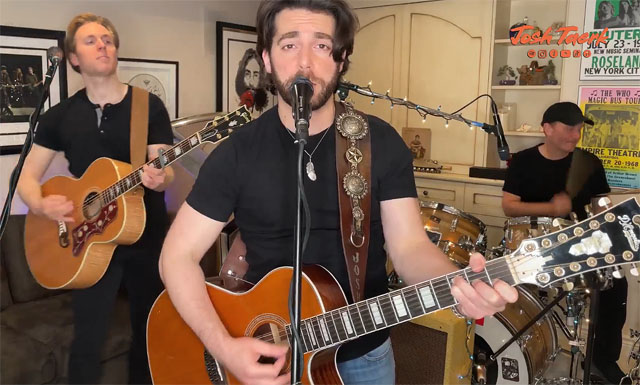
David Randall presents a weekly show on Get Ready to ROCK! Radio, Sundays at 22:00 GMT, repeated on Mondays and Fridays), when he invites listeners to ‘Assume The Position’. The show signposts forthcoming gigs and tours and latest additions at getreadytorock.com. This “Best of 2025 reviewer choices” show was first broadcast on 21 December 2025.
UK Blues Broadcaster of the Year (2020 and 2021 Finalist) Pete Feenstra presents his weekly Rock & Blues Show on Tuesday at 19:00 GMT as part of a five hour blues rock marathon “Tuesday is Bluesday at GRTR!”. The show is repeated on Wednesdays at 22:00, Fridays at 20:00). Pete’s Best of 2025 was first broadcast on 23 December 2025
How to Listen Live?
Click the programming image at the top of the page (top right of page if using desktop)
Get Ready to ROCK! Radio is also in iTunes under Internet Radio/Classic Rock
Listen in via the Tunein app and search for “Get Ready to ROCK!” and save as favourite.
More information and links at our radio website where you can listen live or listen again to shows via the presenter pages: getreadytorockradio.com
Power Plays w/c 26 January 2026
JOANNE SHAW TAYLOR Hell Or High Water (Journeyman Records)
TY FREEMAN One Way Love (indie)
GREY DAZE Monster You Adore (indie)
HOKKA Death By Cupids Arrow (Nuclear Blast Records)
PURPLE DOTS Stared At The Sun (Kycker)
SAINT AGNES Song For Mia (Spinefarm)
STREETLIGHT Shake That Feeling (Frontiers)
Featured Albums w/c 26 January 2026
09:00-12:00 The Best of 2003 – 2025 (Melodic Rock)
12:00-13:00 The Best of 2003 – 2025 (Melodic Hard Rock)
14:00-16:00 The Best of 2003 – 2025 (Singer Songwriter)
Our occasional Newsletter signposts latest additions to the website(s). We also include a selection of recent top albums, based on GRTR! reviewer ratings. The newsletter is sent out a few times a year.
If you’d like to register to receive this occasional mailing please complete the form:
If using a smartphone/tablet please tap here or re-orientate your device
(Note that this registration is separate from site registration which allows you to leave comments and receive daily emails about new content. If you wish to register for this – in addition or separately – please click or tap here – for more information – the form is at the foot of each page. Please read our privacy policy when opting-in to receive emails.
Recent (last 30 days)
Share the post "PSYCHOTIC WALTZ (Band sans Dan Rock) INTERVIEW"

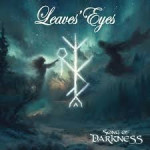
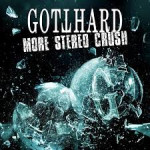



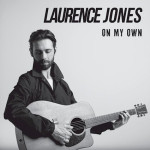
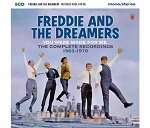
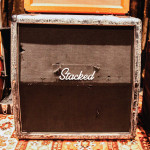
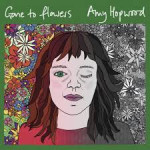
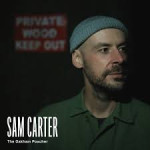
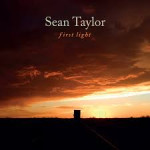
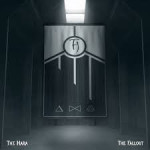
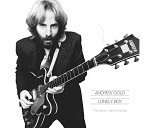
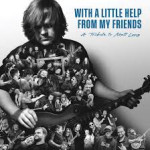

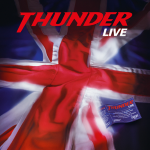

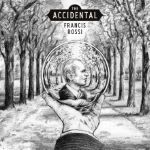
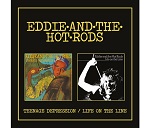
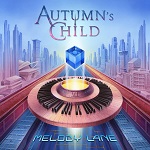
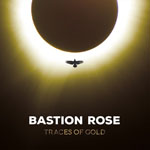
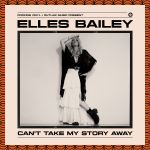

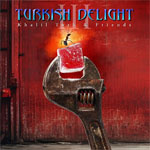

 PDF - you can delete unwanted sections
PDF - you can delete unwanted sections

















